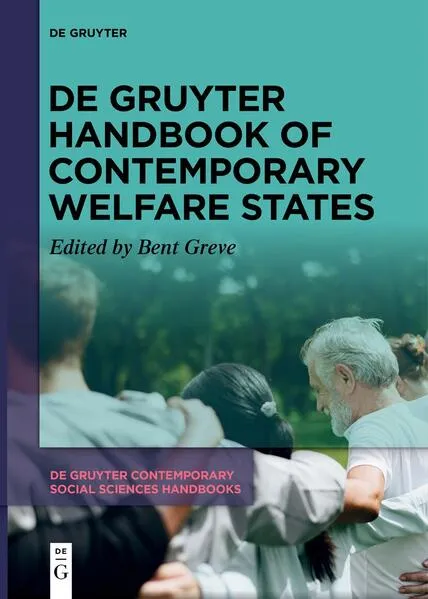
- Publikationen ca: 4
- Fragen & Antworten
Bent Greve
De Gruyter Handbook of Contemporary Welfare States
Welfare States have evolved and developed over now close to the last 150 years, although not in all countries at all times in the same direction implying that they are still very diverse. There was a time of golden growth of the welfare states shortly after the second world war, and then after the oil-price shock in 1th 1970’s has, at least since OECD’s pathbreaking book been argued to be in crisis.
De Gruyter Handbook of Contemporary Welfare States
Globalisation, regionalisation, new technology, demography, voters’ expectations and re-structuring of societies are expected to influence welfare state development for years to come. This handbook analyses how different welfare state models and regimes will be able to cope with contemporary and future challenges, providing a variety of evidence based tools that make it essential reading for students, researchers and policy makers alike.
De Gruyter Handbook of Contemporary Welfare States
Globalisation, regionalisation, new technology, demography, voters’ expectations and re-structuring of societies are expected to influence welfare state development for years to come. This handbook analyses how different welfare state models and regimes will be able to cope with contemporary and future challenges, providing a variety of evidence based tools that make it essential reading for students, researchers and policy makers alike.
De Gruyter Handbook of Contemporary Welfare States
Globalisation, regionalisation, new technology, demography, voters’ expectations and re-structuring of societies are expected to influence welfare state development for years to come. This handbook analyses how different welfare state models and regimes will be able to cope with contemporary and future challenges, providing a variety of evidence based tools that make it essential reading for students, researchers and policy makers alike.



